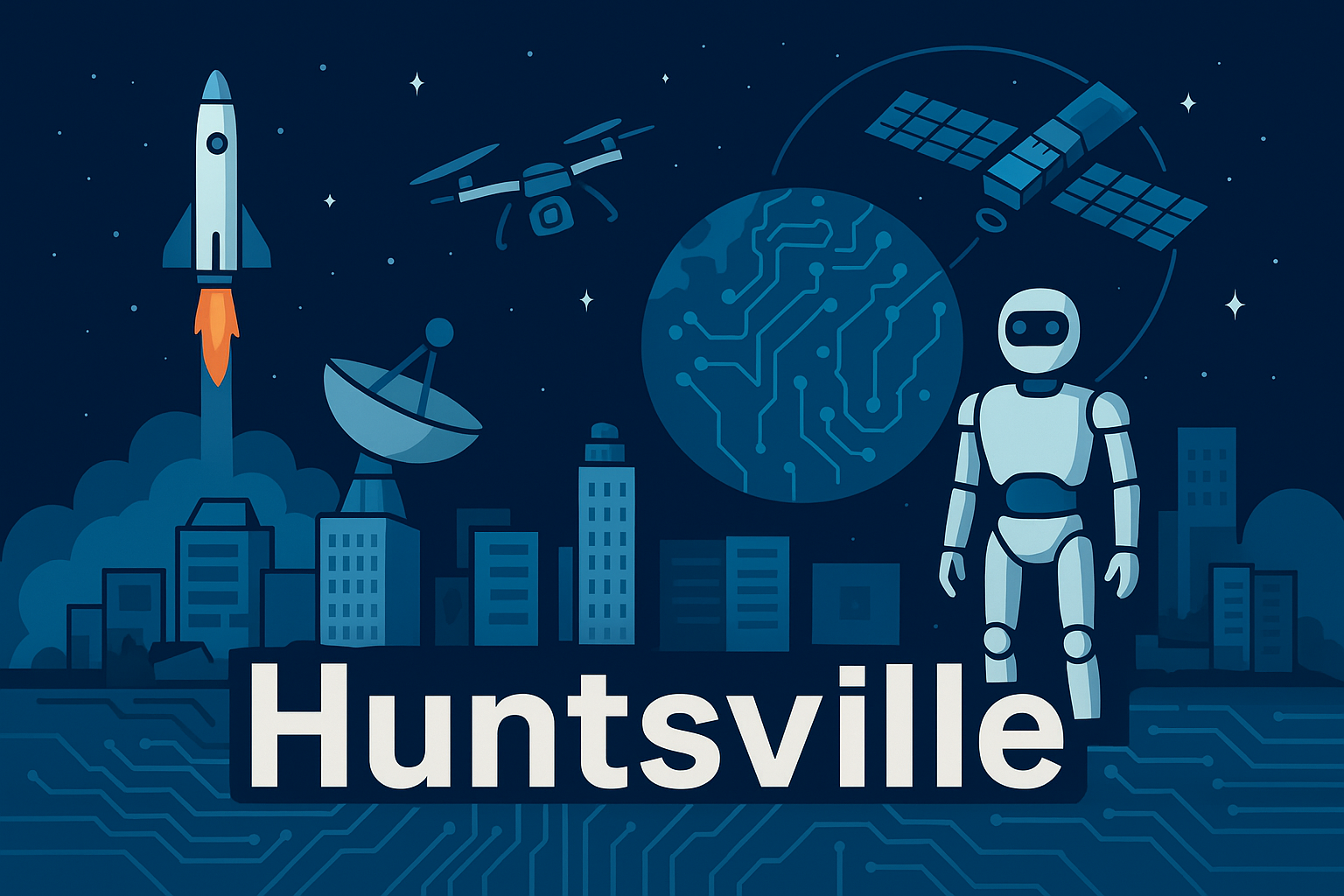Environmental Impact of AI: Greener Innovation Starts in Huntsville
By HuntsvilleAI.org | July 21, 2025
Artificial intelligence is evolving rapidly—but what is its true cost to our environment?
While AI drives innovation across cities, industries, and defense, Huntsville, Alabama is uniquely positioned to lead in another critical area: reducing the environmental impact of AI. Known for its strength in aerospace, military research, and engineering, Huntsville is also becoming a hub for sustainable AI innovation.
At Huntsville AI, we’re committed to responsible progress. This includes recognizing the high energy demands of AI systems and promoting solutions that are scalable, efficient, and environmentally conscious. From solar-powered data centers to climate-smart AI applications, we’re helping shape a greener future.
The Carbon Footprint of AI Systems
Large AI models, like GPT or Gemini, require extensive computational power. Training one model can emit as much CO₂ as five homes in a year. Most of these models operate from global data centers that often still rely on fossil fuels.
In Huntsville—where AI supports sectors like defense, aerospace, and logistics—the environmental stakes are even higher:
1 large model = 284 tons CO₂
AI training strains national and local power grids
Few models use carbon-offset strategies
To reduce the environmental impact of AI, we must first understand it. Transparent emissions data and accountability are crucial to building sustainable AI systems.
Green AI Strategies in Huntsville
Huntsville is home to:
NASA’s Marshall Space Flight Center
Redstone Arsenal
A thriving clean-tech and AI startup scene
Together, these institutions are advancing green AI solutions that balance innovation with sustainability, including:
⚡ Smart grid optimization with AI
️ Carbon-aware model training
️ Low-power edge computing for aerospace and defense
☀️ Data centers powered by solar, geothermal, and wind energy
At Huntsville AI, we promote practices like adaptive computing, automated energy throttling, and real-time carbon tracking. These tools help minimize emissions while keeping AI performance strong.
Read about our RESPOND Framework to learn how we prioritize Responsible AI adoption.
Huntsville’s Role in AI Sustainability Leadership
AI can be both the problem and the solution.
Huntsville-based researchers are already leveraging AI to:
Improve agricultural yields while cutting pesticide use
️ Monitor climate trends with satellite-based AI sensors
⚡ Optimize real-time performance of renewable energy grids
Detect deforestation and monitor carbon sinks using AI vision
By combining cutting-edge AI with Alabama’s deep-rooted engineering talent, we’re building a powerful foundation for climate-focused technology in the Southeast.
A Call to Action for Greener AI
We urge developers, policymakers, and researchers across Alabama and beyond: adopt sustainable practices in AI development. Whether you’re training neural networks or managing cloud infrastructure, your energy use has consequences.
✅ Prioritize low-power solutions
✅ Track your model’s emissions
✅ Choose green hosting infrastructure
✅ Incorporate sustainability into AI ethics frameworks
Let’s power the future—without polluting it.
Together, we can make Huntsville a national model for sustainable AI, while setting global standards for responsible innovation.
Read the full Green AI research paper on arXiv to understand the science behind AI’s carbon impact.


